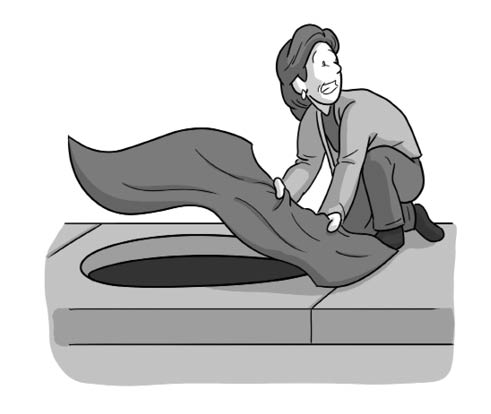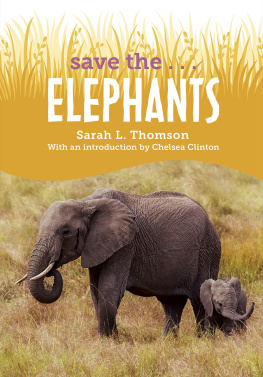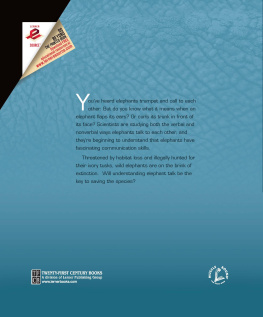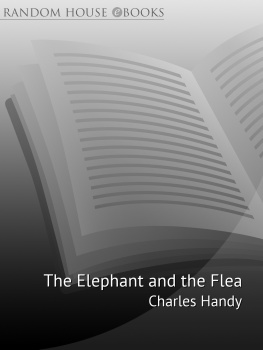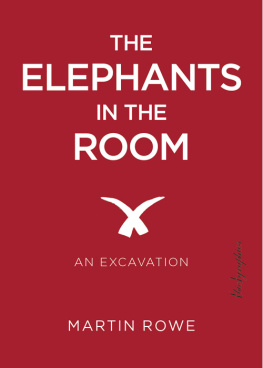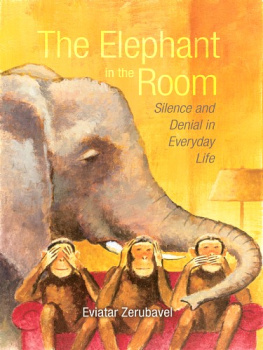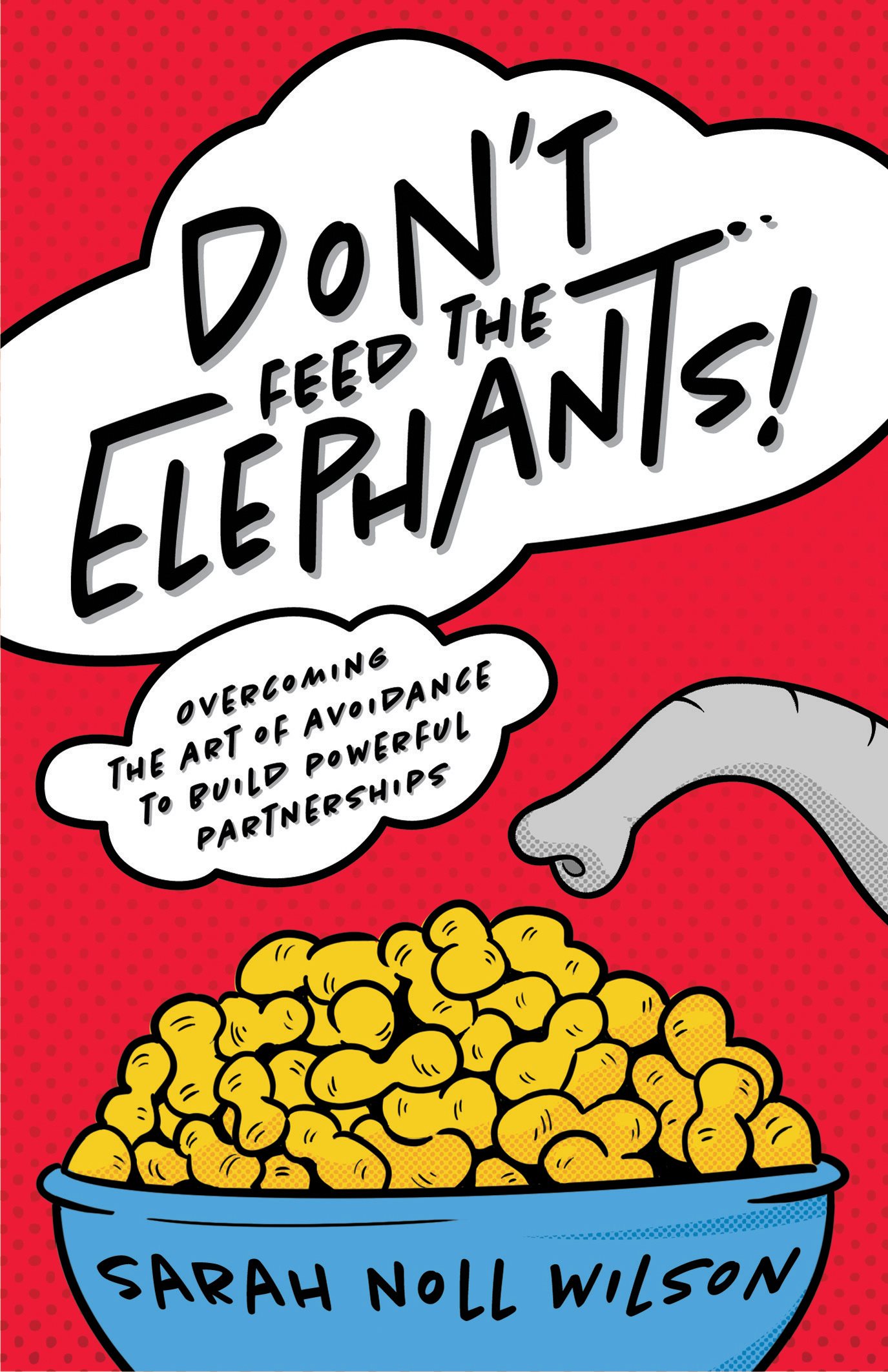
Dont
Feed the
Elephants!

Dont
Feed the
Elephants!
Overcoming the Art of Avoidance
to Build Powerful Partnerships

Sarah Noll Wilson

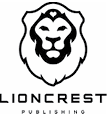
copyright 2022 sarah noll wilson
All rights reserved.
Dont Feed the Elephants!
Overcoming the Art of Avoidance to Build Powerful
Partnerships
isbn
978-1-5445-2512-9 Hardcover
978-1-5445-2450-4 Paperback
978-1-5445-2449-8 Ebook
978-1-5445-2451-1 Audiobook

To Mom, Dad, and Nick. You support me relentlessly,
wipe my tears compassionately, and listen to me talk (a lot).
I wouldnt be who I am without you.

Contents

Foreword
By Dr. Cris Wildermuth
T he first time I met Sarah, I was a brand-new Assistant Professor at Drake University, still finding my way around campus. I was scared, trying to figure out how far I could go before my academic colleagues would think I was too crazy. Imposter syndrome was rearing its ugly head. Am I truly qualified to be a professor? Do I deserve to be here? Will students be confused or bored? I was desperate for allies then, students who got my quirkiness and love for the unusual, humans unafraid of failure. Sarah was one of my first allies, and she has continued to be to this day.
Over the years, weve learned to share leadership, leading and following in a graceful dance. We love the story of the geese that fly in a V-formation, each goose flapping its wings and easing the others burden. When the lead goose gets tired, two other geese stay behind to support the leader, and another goose takes over. We got used to just saying Goose to each other. We knew what that meant. One of us was tired; the other would keep going. To the teams we led, it felt seamless. Working with Sarah taught me that leadership is a journey to be shared, not a solitary endeavor.
About Dont Feed the Elephants
Lets face it: Most of us live in a world filled with judgment. We learn how to judge ourselves and others almost before we learn how to talk. Right. Wrong. Rule following. We discover how to fit in, avoid bothering the popular kids, and get decent grades. We protect ourselves by staying silent, ignoring persistent pain, and finding the one BFF with whom we can be vulnerable. By the time we are adults, we have become gourmet chefs, cooking exquisite peanut-based dishes for our elephant collection.
Like many of you, I am also an expert elephant feeder with a lifetime of experience raising peanut crops. I grew up in Brazil, and in my family, thou shalt not be rude was the eleventh commandment. My motto used to be if you want to say something about me, go ahead and say it behind my back. So yes: I know every elephant feeding technique one could imagine. Feigning ignorance. Seething in silence. Telling friends about problems Ill never solve. But I dont know how to stop cooking new peanut dishes. I have, so far, failed at putting my elephants on a diet.
Sarah writes that we all have a choice: We can release our elephant or keep feeding it. Elephant feeding, however, is costly. Your peanut farms steal your energy, stifle creativity, and destroy trust and teamwork. We must get out of the peanut farming and gourmet peanut cooking business. Doing so will release the useless energy we spend on meetings behind meetings, venting without solutions, and gossiping without purpose.
There is more to this book, though, than enhancing teamwork. Unapologetically human, Sarah is unafraid of vulnerability. She shares raw experiences most of us would try to hidemoments of shame and fear, panic attacks, and self-doubt. Sarahs honesty gives her readers permission to capitalize on their own raw humanity. Dont Feed the Elephants will help you conquer your fears and speak your truth. In the end, you may find that this book will not only free the elephants but also release your own power.

Introduction
O f course, you know what an elephant is. Big, gray beast, long trunk, and large ears. They like peanuts, have a reputation for not forgetting anything and being afraid of mice.
To be clear, no one wants those real-life pachyderms to go unfed.
Theres another kind of elephant that youre probably aware of too. It looks like avoidance of addressing a known conflict that creates a harmful barrier to success. Its big. Its there. It might be hanging out in the conference room under someones chair, or even sprawled across the table. Everyone is aware of this elephant in the room, and no ones talking about it.
In fact, no one on your team is talking much at all. At least not about anything that matters. Your team is discouraged, disconnected, and disenchanted. No one challenges ideas to get to better solutions or discusses the difficulties they encounter on a project. They all say everything is fineuntil it isnt, and youre stuck trying to solve problems that could have been avoided with better communication. Your most productive team lead gave notice last week. Youre finding it hard to drag yourself into work in the morning. Something is getting in the way of your teams success, and it feels like everyone is spinning and getting nowhere. Youd fix it if you could, but you have no idea how to begin. I get it. Ive been there too. Now, I coach executives and teams through these issues, and Im here to help you too.
A Reformed Avoider
For as long as I can remember, Ive been passionate about solving problems and disrupting the status quo. I was especially fearless when it came to rules or expectations from authority that felt limiting. I was only ten years old when I was told that girls couldnt serve in the church as altar boys. I kept asking, Why not? and volunteering, never getting a chance or a reasonable explanation, until one fateful day when a fellow altar boy didnt show up. I was there with my robes on, ready to step in with a smile. Still one of my (and my parents) proudest moments growing up.
While I had many moments of speaking up and pushing against the boundaries of authority, that same courage didnt extend to my personal relationships. Its much easier to have courage when you have nothing to lose, but when it came to my most precious connections, I was a masterful avoider and smoother-over.*
